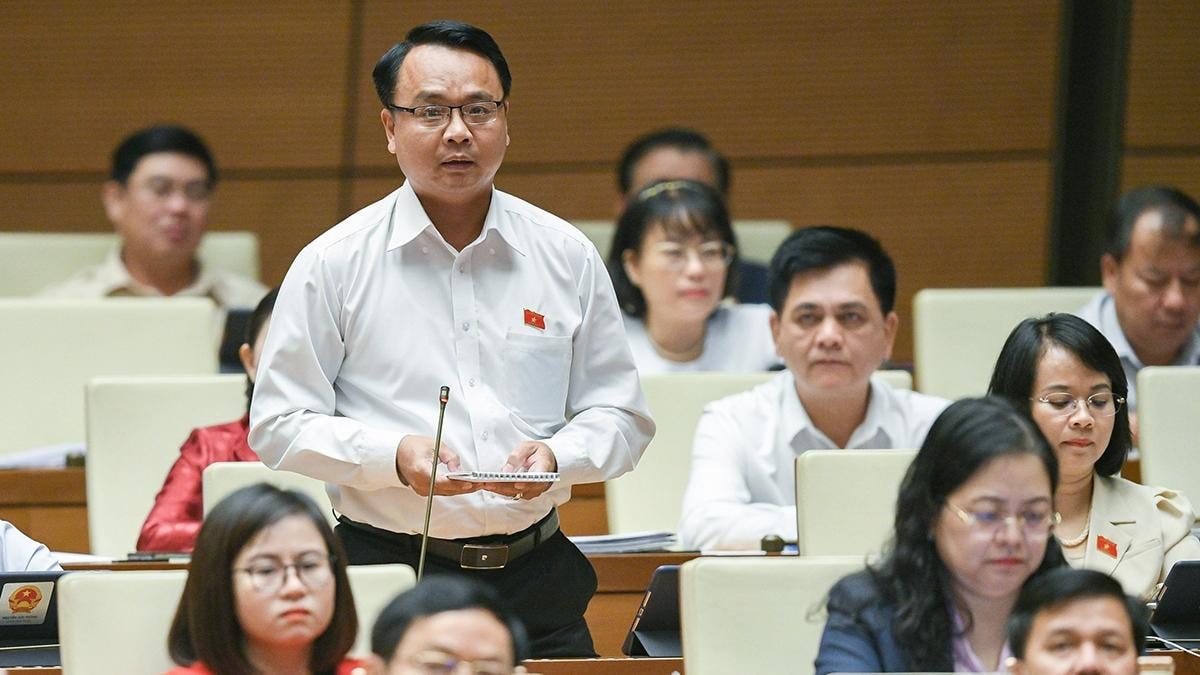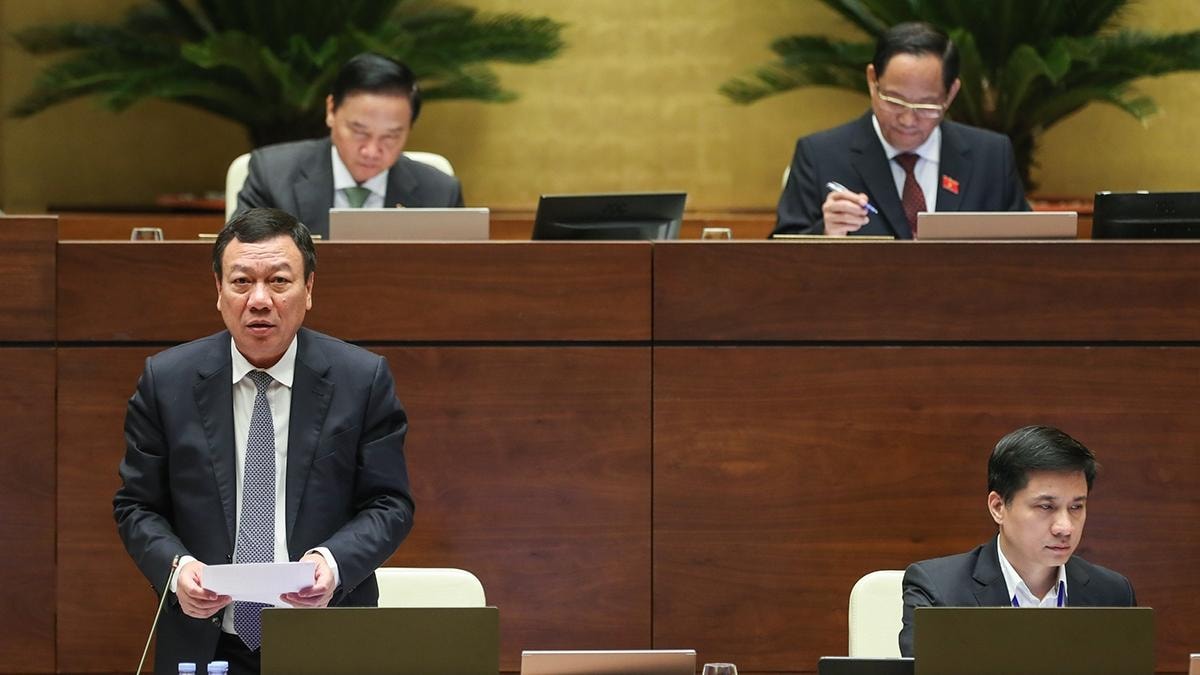National Assembly Delegate: The inspection did not detect any violations, but the Central Inspection Committee found them?
National Assembly delegates raised questions when questioning Government Inspector General Doan Hong Phong at the 4th Session, during the working session on the morning of November 5.
As the first person to ask a question, delegate Dang Hong Sy (Binh Thuan delegation) said that recently there were cases where the inspector concluded that there were no shortcomings, or only reviewed and learned from experience, but when the Central Inspection Committee got involved, violations were discovered and the investigation agency handled the case criminally.
 |
Delegate Dang Hong Sy questioned the Government Inspector General. |
“Is it because the law is not consistent, the law is not understood correctly or there is negativity in the inspection process? Could the minister please tell us what solutions will be used to overcome this situation in the future?” - the delegate questioned.
Responding to the delegate, Government Inspector General Doan Hong Phong cited a specific incident that occurred in Binh Thuan and said that perhaps the delegate was referring to this case.
Accordingly, in 2019, based on a complaint from a former official of Binh Thuan province, the leaders of this province made mistakes in a number of cases, including changing the purpose of using a golf course to an urban area.
The Government Inspectorate established an inspection team to review the contents. The Inspectorate based on the audit results, inherited and discovered that the conversion of land use purpose was wrong when not reserving 20% of the land fund for social housing, and determined the land price incorrectly.
 |
Government Inspector General Doan Hong Phong answers National Assembly delegates. |
The State Audit and the Government Inspectorate concluded that they required the People's Committee of Binh Thuan province to recalculate and determine the legality. However, after 1-2 years, the People's Committee of Binh Thuan province did not implement the law, so the whistleblower continued to denounce. At that time, Mr. Phong had just taken on the task of Inspector General and directed the review, discovered violations and transferred them to the investigation agency.
“The Central Inspection Committee has reviewed this matter and found the inspectorate responsible for two issues: slow resolution and inheriting the audit results of the Ministry of Construction. Therefore, all three agencies have disciplinary action,” Mr. Doan Hong Phong informed.
Inspection and rectification of the banking sector
Delegate Bui Manh Khoa (Thanh Hoa delegation) assessed that the work of preventing and combating corruption in the banking sector has recently achieved many encouraging results, significantly reducing violations in this field. However, according to him, the situation of law violations is still complicated and sophisticated. Therefore, the delegate proposed to clarify the responsibility of banking inspection in recent years and what solutions to promptly detect violations, negativity and corruption in this field?
 |
Delegate Bui Manh Khoa raised the issue of banking inspection. |
Clarifying this issue, Government Inspector General Doan Hong Phong said that, in performing the State management function on inspection work, every year the Government Inspectorate coordinates with ministries, branches, localities, and the State Bank to submit to the Government for approval the direction of inspection work, including key and focal inspections.
In the banking sector, inspections often focus on currency, especially credit granting, real estate investment, government bonds, anti-money laundering... Every year, the Government Inspectorate directs and guides banking inspectors to conduct specialized supervision and inspections on revenue and expenditure control, monetary finance, and bad debt risk areas. In fact, inspections have been conducted at the State Bank, 4 commercial banks, and 2 policy banks.
According to regulations, the Government Inspectorate only inspects state-owned enterprises and enterprises with more than 50% state shares, while those with less than 50% and private enterprises are subject to specialized inspection by the State Bank. Except in cases where the Government Inspectorate is assigned by the Central Steering Committee on Anti-Corruption and Anti-Negativity or the Government or the Prime Minister to inspect private enterprises, it will only conduct inspections (it has inspected 1 public bank).
Through inspection work, the Government Inspectorate also discovered and recommended amending many mechanisms and policies that easily lead to violations in monetary and banking credit management. The authorities also discovered many errors in operations and recommended rectifying management work, handling violations to maintain discipline. Cases with signs of criminal violations were transferred to the investigation agency for strict handling./.


